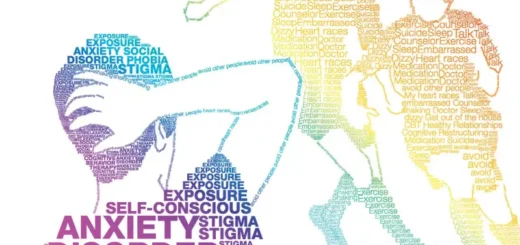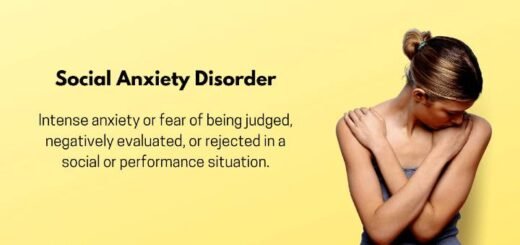CBT Strategies from Experts to Conquer Social Phobia
Cognitive Behavioral Approaches (CBT) have emerged as powerful strategies for addressing various mental health challenges, particularly in the context of social phobia. Insights from expert studies highlight the effectiveness of CBT in altering negative thought patterns and fostering healthier behaviors. In New Zealand, where mental health awareness is on the rise, these methods are increasingly being integrated into therapeutic practices to support individuals facing social anxiety.
Recent insights into natural remedies for social phobia in New Zealand further complement traditional CBT techniques, offering holistic options for those seeking alternative support. By combining expert-backed strategies with local resources, individuals can navigate their social fears more effectively. For more information on effective natural remedies, visit this resource.
Understanding Cognitive Behavioral Approaches
Cognitive Behavioral Approaches (CBT) focus on the interplay between thoughts, feelings, and behaviors. This psychological framework posits that our thoughts directly influence our emotional states and subsequent actions. By recognizing and altering negative thought patterns, individuals can effectively manage a variety of mental health issues, including anxiety and depression.
Studies demonstrate that CBT can lead to significant improvements in mental well-being. In New Zealand, mental health services increasingly incorporate CBT techniques for treating conditions like social anxiety disorder. Through structured therapy sessions, clients learn to identify cognitive distortions and replace them with more positive, realistic thoughts.
For instance, someone grappling with performance anxiety might fear public speaking due to thoughts like “I will embarrass myself.” In CBT, they would learn to challenge this belief, replacing it with something like “I have prepared well, and I can handle this.” This shift not only reduces anxiety but also cultivates a more resilient mindset.
Moreover, CBT is highly adaptable, making it suitable for diverse populations, including Māori and Pasifika communities. Culturally sensitive approaches can enhance the efficacy of CBT by integrating traditional beliefs and practices, thus creating a more personalized therapy experience.
For further insights into CBT’s effectiveness in addressing social anxiety, visit Social Phobia New Zealand.
The Role of Behavioral Activation
Behavioral activation is a cornerstone of Cognitive Behavioral Approaches. It involves engaging clients in activities that align with their values and interests to combat depression and low motivation. This practice is particularly relevant in New Zealand, where the natural environment offers a myriad of opportunities for engagement.
Research indicates that individuals who actively participate in enjoyable activities experience enhanced mood and reduced depressive symptoms. For example, someone in Auckland might benefit from exploring local hiking trails, participating in community sports, or volunteering for local charities. Such activities not only provide a sense of accomplishment but foster social connections, which are vital for mental health.
A practical approach to behavioral activation is to encourage individuals to create a weekly activity schedule. This schedule should include a mix of social, physical, and creative activities. By committing to these activities, individuals can break the cycle of avoidance often associated with depression and anxiety.
Furthermore, therapy can include goal-setting exercises that help clients identify and prioritize activities that resonate with their values. This process empowers individuals to take charge of their mental health by infusing their lives with purpose and joy.
Incorporating behavioral activation into daily routines can lead to meaningful changes, especially in the context of New Zealand’s vibrant community life.
Cognitive Restructuring Techniques
Cognitive restructuring is a vital technique within Cognitive Behavioral Approaches. It involves identifying and challenging negative thought patterns, enabling individuals to reframe their perspectives. This method is particularly beneficial for those struggling with anxiety and depression.
In New Zealand, cognitive restructuring can be applied to everyday life situations. For example, an individual preparing for a job interview may experience thoughts like “I’m not qualified enough” or “I’ll never get hired.” Through cognitive restructuring, they can learn to challenge these thoughts and replace them with affirmations like “I have relevant skills and experience” or “I’m prepared and capable.”
Therapists often utilize a structured framework for cognitive restructuring, which includes identifying automatic thoughts, examining evidence for and against these thoughts, and formulating balanced alternatives. This process not only enhances self-awareness but also promotes healthier thinking patterns.
Research supports the effectiveness of cognitive restructuring in reducing symptoms of anxiety and improving overall mental health. By actively engaging in this process, individuals can cultivate a more positive self-image and a greater sense of agency in their lives.
For those interested in exploring these techniques further, resources available through Social Phobia New Zealand provide valuable insights into cognitive restructuring’s role in managing social anxiety.
Mindfulness and Its Integration with CBT
Mindfulness is an increasingly popular component of Cognitive Behavioral Approaches. It focuses on becoming aware of the present moment without judgment, allowing individuals to observe their thoughts and feelings without becoming overwhelmed. This practice can significantly enhance the effectiveness of CBT.
In New Zealand, mindfulness practices such as meditation, yoga, and nature walks are widely accessible and can be integrated into CBT. Studies show that mindfulness can lead to reduced anxiety and improved emotional regulation. By teaching clients to observe their thoughts, therapists help them detach from negative thinking patterns.
Mindfulness can be particularly effective in managing social anxiety. For instance, individuals can practice mindfulness techniques before engaging in social situations, helping them remain grounded and calm. A simple exercise involves focusing on one’s breath—taking slow, deep breaths to center oneself before entering a potentially anxiety-inducing environment.
Additionally, incorporating mindfulness into daily routines can foster resilience. Clients are encouraged to set aside time for mindfulness practices, creating a habit that supports mental health. New Zealand’s natural landscapes provide the perfect backdrop for these practices, allowing individuals to connect with their surroundings while nurturing their mental well-being.
Resources available at Social Phobia New Zealand offer guidance on integrating mindfulness with CBT strategies for better outcomes.
The Importance of Homework Assignments
Homework assignments are a crucial aspect of Cognitive Behavioral Approaches. These tasks reinforce learning and encourage individuals to practice skills outside of therapy sessions. In New Zealand, therapists often assign homework that is relevant to clients’ everyday experiences, fostering a practical application of CBT techniques.
For example, a therapist might ask a client to keep a thought diary, documenting negative thoughts and the corresponding emotions throughout the week. This exercise enhances self-awareness and helps clients identify patterns in their thinking. By reviewing these entries in subsequent sessions, clients can work on cognitive restructuring and behavioral activation strategies.
Another common assignment is exposure tasks, particularly for those dealing with social anxiety. A client may be encouraged to gradually confront feared situations, such as initiating a conversation with a stranger or attending a social gathering. These gradual exposures help desensitize individuals to anxiety-provoking situations, thereby reducing avoidance behaviors.
The effectiveness of homework assignments is supported by empirical research, which indicates that individuals who engage in these tasks demonstrate greater improvements in their mental health. In the context of New Zealand, combining homework with local resources—such as community events or support groups—can enhance the learning experience and foster social connections.
For additional insights into the role of homework assignments in CBT, check out Social Phobia New Zealand.
Group Therapy and Community Support
Group therapy is a powerful tool within Cognitive Behavioral Approaches, offering individuals the opportunity to share experiences and learn from one another. In New Zealand, group therapy can be particularly effective in fostering a sense of community and reducing feelings of isolation.
Research indicates that group therapy can enhance the effectiveness of CBT by providing social support and diverse perspectives. Participants often find solace in realizing that others share similar struggles, which can be incredibly validating and empowering.
In New Zealand, many mental health organizations offer group therapy sessions focusing on various issues, including anxiety, depression, and stress management. These groups provide a safe space for individuals to practice CBT techniques, such as cognitive restructuring and mindfulness, while receiving feedback and encouragement from peers.
Additionally, group therapy can be tailored to accommodate specific cultural contexts, ensuring that all participants feel respected and understood. This cultural sensitivity enhances the therapeutic experience and fosters a sense of belonging among participants.
Community support networks in New Zealand can further bolster the benefits of group therapy. By connecting with local resources, individuals can access additional support and engage in activities that promote mental well-being.
For those interested in exploring group therapy options, resources can be found at Social Phobia New Zealand.
FAQs
What are cognitive behavioral approaches?
Cognitive behavioral approaches are psychological strategies that focus on the interplay between thoughts, feelings, and behaviors. These approaches aim to help individuals identify and change negative thought patterns that contribute to emotional distress, ultimately leading to healthier behaviors and improved mental well-being. Insights from expert studies highlight the effectiveness of these strategies in treating various mental health conditions.
How do cognitive behavioral strategies work?
Cognitive behavioral strategies work by helping individuals recognize and challenge distorted thinking patterns. Through techniques such as cognitive restructuring, individuals learn to replace negative thoughts with more realistic and positive ones. Insights from research demonstrate that by altering these cognitive distortions, individuals can experience significant improvements in their emotional health and behavior.
What types of conditions can cognitive behavioral approaches address?
Cognitive behavioral approaches are effective in addressing a wide range of conditions, including anxiety disorders, depression, PTSD, OCD, and phobias. Expert studies have shown that these strategies can provide substantial relief for individuals struggling with these mental health issues, leading to improved quality of life.
Are cognitive behavioral approaches supported by research?
Yes, cognitive behavioral approaches are heavily supported by research. Numerous expert studies have demonstrated their effectiveness across various populations and conditions. Findings indicate that these strategies not only lead to symptom reduction but also help individuals develop long-lasting coping skills, making them a valuable tool in psychological treatment.
How can someone start using cognitive behavioral strategies in their life?
To start using cognitive behavioral strategies, individuals can seek guidance from a trained mental health professional or explore self-help resources such as books and online courses. Engaging in self-reflection and practicing techniques like journaling or thought records can also help. Insights from expert studies suggest that consistency and practice are key to successfully integrating these strategies into daily life.
Is cognitive behavioral therapy (CBT) different from other therapeutic approaches?
Cognitive behavioral therapy (CBT) is distinct from other therapeutic approaches primarily due to its structured, goal-oriented nature. Unlike some therapies that delve into past experiences, CBT focuses on current thought patterns and behaviors. Insights from expert studies indicate that this focused approach allows for rapid improvement in symptoms, making it a preferred choice for many clinicians and patients.
What can one expect during a cognitive behavioral therapy session?
During a cognitive behavioral therapy session, individuals can expect to engage in discussions about their thoughts, feelings, and behaviors. The therapist will often guide the individual in identifying negative thought patterns and teach coping strategies to challenge these thoughts. Insights from expert studies emphasize the collaborative nature of CBT, where the therapist and client work together to develop practical solutions that lead to positive change.
References
- Cognitive Behavioral Therapy for Social Anxiety Disorder – A comprehensive resource providing information on cognitive-behavioral strategies specifically designed to treat social anxiety disorder, including expert-backed approaches.
- Cognitive Behavioral Therapy – APA – The American Psychological Association outlines the principles and effectiveness of cognitive behavioral therapy, supported by extensive research and expert testimonials.
- Cognitive Behavioral Therapy: A Review – This article from the National Institutes of Health reviews the efficacy and mechanisms of cognitive behavioral therapy in treating various mental health issues, backed by scientific studies.
- Cognitive Behavioral Therapy for Depression – A detailed chapter in a NIH publication discussing the application of cognitive behavioral strategies in treating depression, including expert recommendations and research findings.
- Cognitive Behavioral Therapy Overview – Psychology Today – An accessible overview of cognitive behavioral therapy, discussing its effectiveness and the various techniques employed in clinical settings, supported by expert insights.




